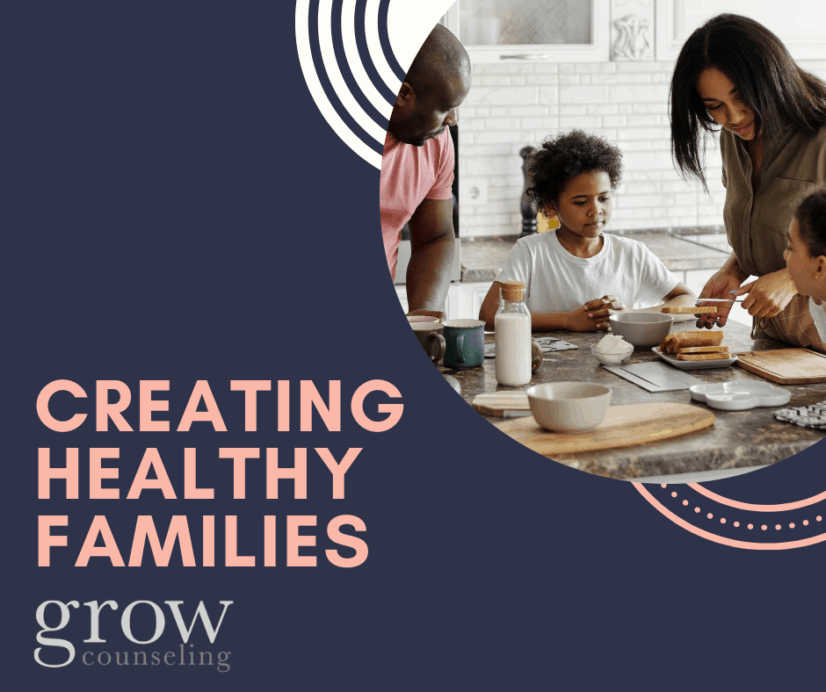With so many distractions and the busyness facing families these days, it becomes more challenging to create a healthy family where members feel valued, important, cared for, and part of something bigger than themselves. Family is our first introduction to all of these important life skills. Family is where we learn to love, to cooperate, to follow rules, to communicate needs, make meaningful relationships, and experience trust and safety.
Creating a healthy family involves parenting skills to provide safety, comfort, model strong communication skills, create opportunities for bonding as a team, and assist in the creation of healthy relationships among family members.
Sounds like a lot to accomplish? It can be, depending on when you begin. If parents begin at the birth of their children to set these items in place, the skills become part of the home and an expectation of all family members.
What if your children are older? Is it too late? Unless unhealthy relationships have been formed, abuse or neglect exist, we have the potential to change the way our families interact and thus improve relationships and create healthy boundaries for all.
Let’s break it down.
Communication – This begins and continues with each interaction among family members. Parents model communication, verbal and nonverbal. If parents yell, you will find your children raising voices. If parents are not directly communicating with each other or others, children will be less likely to be forth-coming.
Parents, let’s seek to avoid triangles. Triangles occur when one member talks to another member about a third member instead of talking to the person they have an issue with directly. Triangles are not healthy in any relationship. In fact, speaking directly to the person with whom we have an issue is a sign of maturity.
Bonding – Creating opportunities for family members to spend time together, without screens, is essential for bonding. Bonding is significant because it creates emotional ties, encourages cooperation, and develops a sense of belonging that all members need. There are as many ways to create bonds as there are people. A few examples of opportunities to bond: a family “game night,” camping, vacations or simply sitting down to talk over family dinner. Engaging family members creates a sense of value, safety, comfort and the sense of being part of something bigger than ourselves.
Parents, leading our families to notice ways each individual member contributes to the success of the team can also be an exercise in demonstrating communication, appreciation, value, and love.
If you feel your family could benefit from professional counseling to enhance your relationships, GROW is here to help!
Written by: Allison Wray

